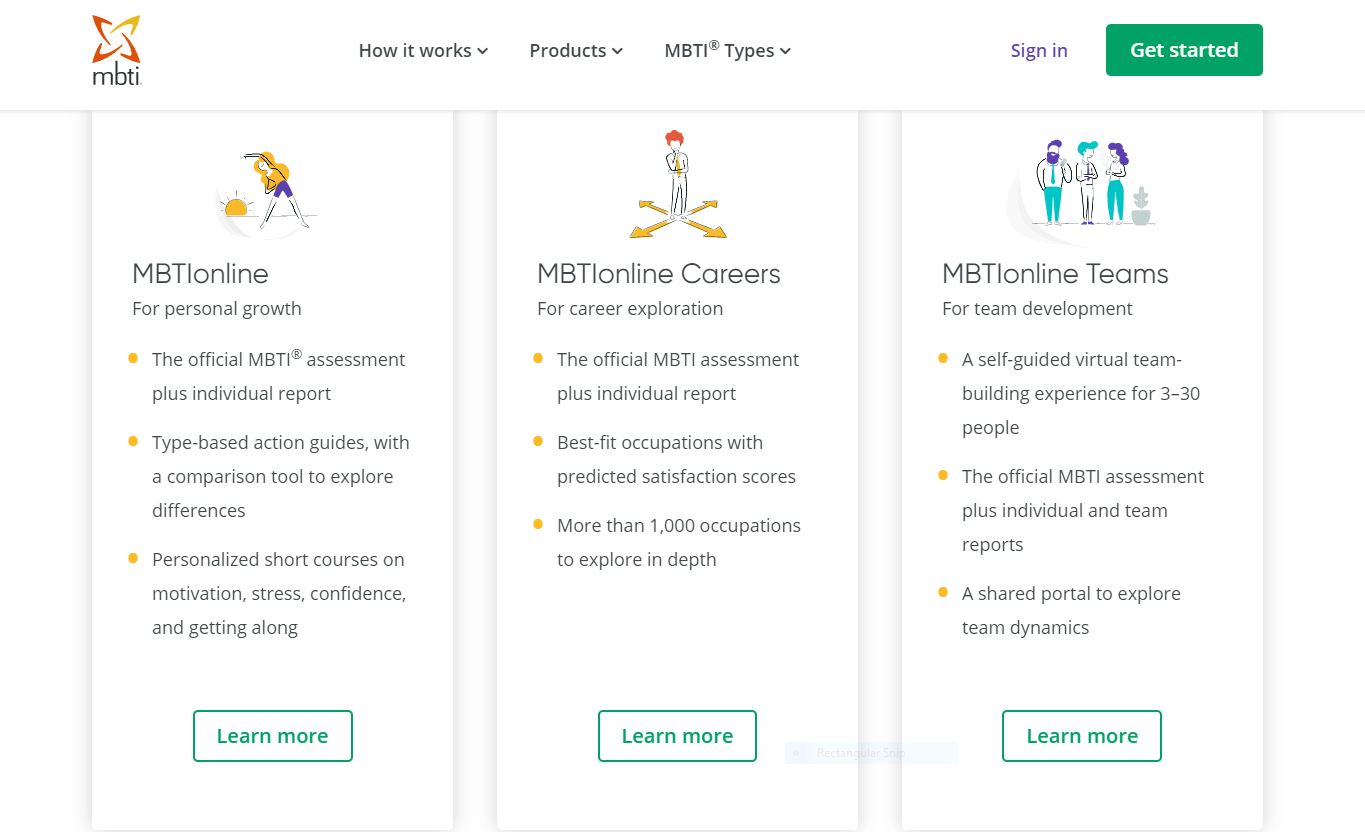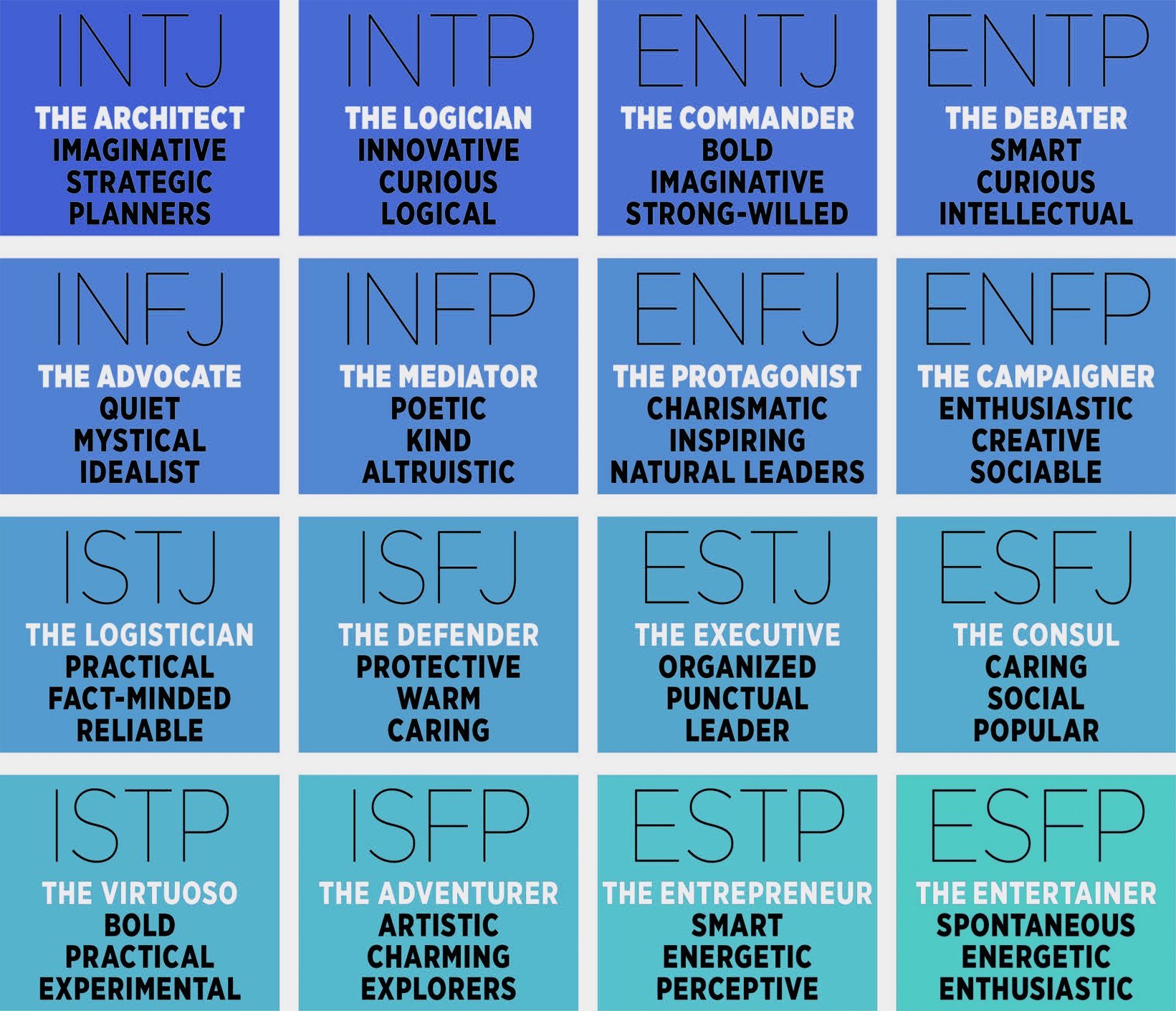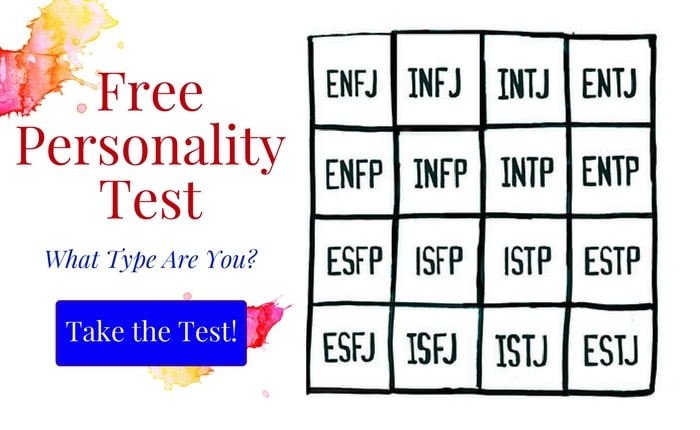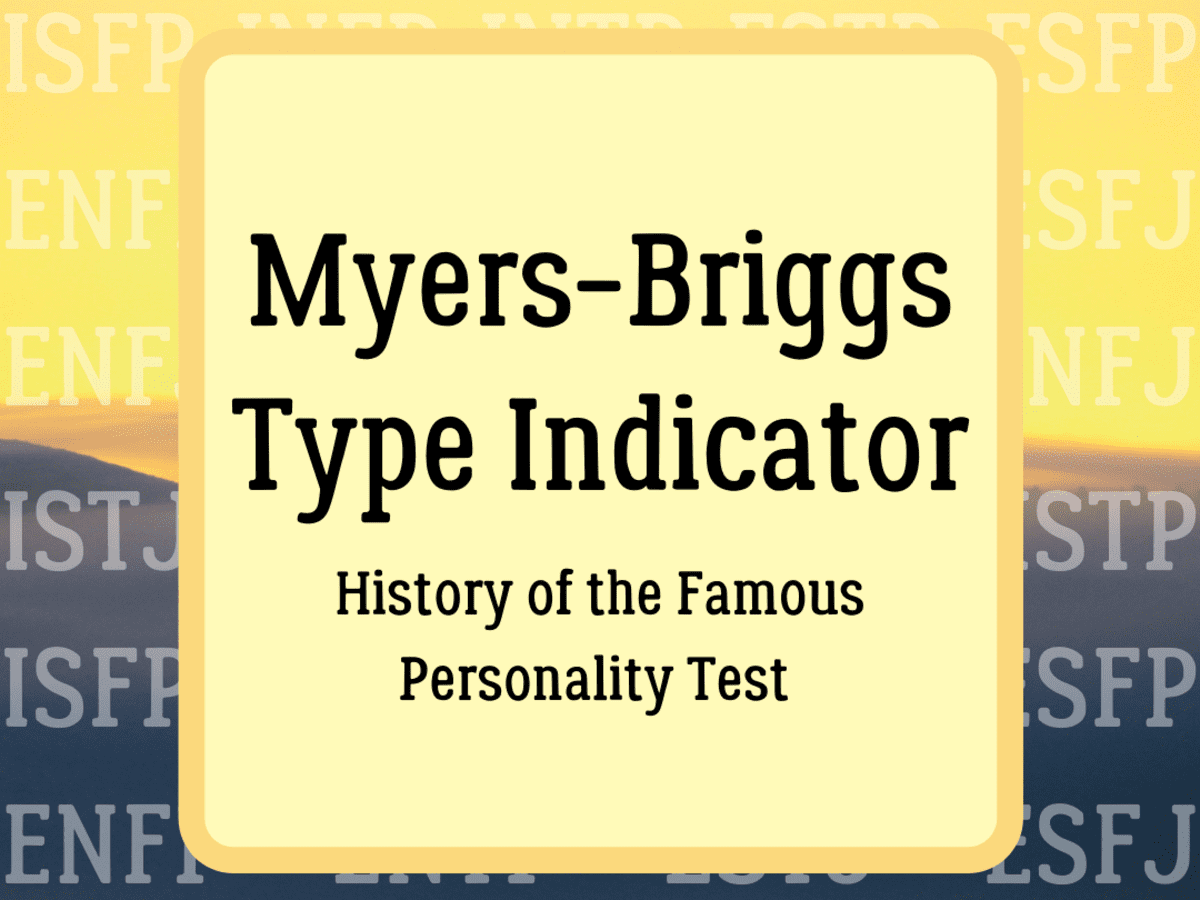The Jung Personality Test, also known as the Myers-Briggs Type Indicator (MBTI), is a psychological tool used to evaluate an individual's personality and psychological preferences. Developed by Carl Jung and further refined by Isabel Myers and Katherine Briggs, the MBTI is based on Jung's theory of psychological type and consists of a series of questions designed to determine an individual's preference in four areas:
Extraversion (E) versus Introversion (I): This preference refers to how an individual directs their energy and how they prefer to interact with the world around them. Extraverts tend to be more outgoing and sociable, while introverts are more reserved and prefer solitude.
Sensing (S) versus Intuition (N): This preference refers to how an individual processes information and makes decisions. Sensors rely on their five senses and concrete facts, while intuitives tend to be more imaginative and rely on their gut instincts.
Thinking (T) versus Feeling (F): This preference refers to how an individual makes decisions. Thinkers rely on logic and objective analysis, while feelers consider the personal and emotional implications of a decision.
Judging (J) versus Perceiving (P): This preference refers to how an individual approaches the outside world. Judgers tend to be organized and prefer structure, while perceivers are more flexible and adaptable.
The MBTI is a popular tool used in a variety of settings, including business, education, and personal development. It is designed to provide insight into an individual's personality and help them better understand their strengths, weaknesses, and how they might best fit into different situations. It is important to note that the MBTI should not be used as a definitive assessment of an individual's personality, as it is based on self-reported responses and may not accurately reflect an individual's true personality. Additionally, the MBTI is not intended to diagnose any psychological disorders or disabilities.
In conclusion, the Jung Personality Test, or Myers-Briggs Type Indicator, is a psychological tool used to evaluate an individual's personality and psychological preferences. It is based on Jung's theory of psychological type and consists of a series of questions designed to determine an individual's preference in four areas: extraversion versus introversion, sensing versus intuition, thinking versus feeling, and judging versus perceiving. While the MBTI can provide valuable insight into an individual's personality, it should not be used as a definitive assessment and should not be used to diagnose any psychological disorders or disabilities.
Explanation of the Jungian Personality Type Test

In some rare instances, a person may be equally drawn to both. Sure, some of them will give you your Jungian type, but can you really tell whether or not that is an accurate answer? Internal processes: Sensory — Intuitive How does a person collect information? The test and its report are much more extensive than free Jung tests. Since the test is longer, the Jung Type listed in the report will also be much more reliable. They aim to make the world a better place on their journey, and will be lauded for their efforts to do so. The results of such assessments provide an overview of your personality. They devise new ideas frequently and often start new projects even while they're working on an existing one.
Personality test based on Jung and Briggs Myers typology

Sage Goal: seek truth Destiny: find paradise Greatest Strength: wisdom Greatest Weakness: lack of action The truth will set the sage free, and they are on a quest for freedom. After parting ways from Freud, Jung proposed a number of theories about consciousness and human existence. Such individuals tend to be practical, organized, committed and traditional. The Jung typology is a tool that can be useful for characterizing others' personalities. . You can see how your personality type meets the requirements of a potential employer. For instance, if you're an ESTP and have a tendency to be impatient, you may try taking a few breaths before responding to situations that cause you distress.
ᐉ Jung Personality Test Online

They're often highly observant and emotionally intelligent, though they may also struggle to express their own feelings to others. All of the possible combinations create 16 personality types. Related: How To Choose the Right Career Path for You in 9 Steps Resolve and avoid conflicts When you know how your personality corresponds with other personality types, you can adapt your communication style to foster a healthier work environment. Get your own account on our. His greatest contribution is his research on personality types. The first letter corresponds to a general attitude, the second to the preference in the sensing-and-intuition dichotomy, the third to the preference in the thinking-feeling category and the fourth to the judging-perceiving pair.
Jung Personality Test

What do you think? Internal state: Thinker — Feeler How does a person make decisions? Magician Goal: understanding Destiny: leave a mark on the world Greatest Strength: powerful Greatest Weakness: manipulative Magicians bring wonder and amazement to people, or are they just manipulating them? Easily adapts to the environment and others. Archetypes are a collection of symbols and innate knowledge that come from the collective unconscious. This isn't the same as emotion, which Jung termed "affect" and regarded as a non-rational, contaminating function. People with a preference for intuition enjoy tackling new, creative projects. This, in turn, could motivate you toward professional development. I feel there is a pretty big hole in the Jung personality testing market and I hope this article will ring true with your findings, too.
Jungian Archetype Test (Free Jung Brand Quiz)

You can also avoid or more efficiently. What are Jung typology tests? Today, the Jungian Personality Type Test is used for a variety of reasons, but tends to be the most helpful for those searching for the right career path. So as you take this quiz, remember not to take it too seriously! They are the life of the party, making people laugh and smile and forget their troubles. And the correct way to purchase {product} is: {now explain to third person}. Rules are meant to be broken. When a person falls under Perceiving category, they are typically more flexible and can adapt to a changing world, whereas a person who falls under the Judging category is very organized and leads a scheduled life. Adjustment Response: Judger — Perceiver How does a person deal with the outside world? People with a preference for sensing typically prefer to work step-by-step on tasks for which they already know the method.
What Are Jung Typology Tests? 16 Personality Types Explained

Those who fall under the Introversion category tend to be drawn to their own inner world and like to spend time with just one other person or a few other people. For example, the archetype of the hero may exist within someone from the moment they are born, but it becomes actualized as the person stands up for what they believe in, acts boldly, and is candid about what they think is right. Creators have no problem starting a new project, but seeing it through becomes a barrier due to their perfectionism and lack of focus. You may, for example, decide you like your qualities but haven't been using them to their full potential. The following Jungian archetype quiz will reveal what category you fall into, but remember — this is just for fun! Extroverts: What It Means and Does It Matter? {Scientific source} says this will lead to 20% more efficiency.
Printable Jung Personality Test

Perceiving means they tend to improvise and explore alternative options. The Assessor cannot resist also completing step 3. Assessor b Global guidelines with flexible space depending on developments. Chances are, the test had less than 40 questions, which is hardly enough to pinpoint your single type from a group of 16 personality types. Are you ready to buy today? They often make good leaders because of their ability to devise and. Jung distinguished between active thinking, in which a person consciously directs their thoughts, and inactive thinking, which is a passive form.
Free Jung Personality Test (No Email Required)

Are you a lover or a jester? All the features of the Jung profiles External Behavior: Extrovert — Introvert Where does a person focus their attention? Each of those ways is represented by a letter. This archetype is likely to get taken advantage of because they are too trusting, but bring a sense of positivity to the people around them that is refreshing and hopeful. This leaves the rebel with little choice but to break laws and face trouble from the powers that aim to maintain the status quo. Orphan Everyman Goal: feel a sense of belonging Destiny: build connections with others Greatest Strength: objectivity Greatest Weakness: cynicism The orphan, or everyman, aims to belong. Creator Goal: provide the world with something new Destiny: bring structure Greatest Strength: imagination Greatest Weakness: lack of focus The world is a canvas for the creator. A person who falls under Extraversion are better talkers than listeners and enjoy spending time with large groups of people.







